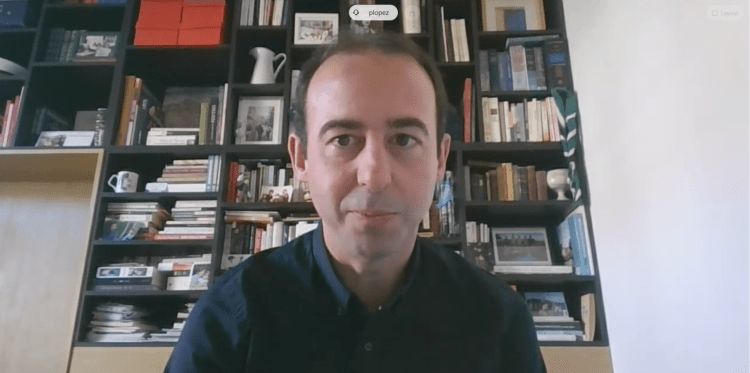The Federation of Official Spanish Chambers of Commerce in Europe,Africa,Asia and Oceania, FEDECOM, renews its Boards of Directors and announces new incorporations
The Ordinary General Assembly of the Federation of Official Spanish Chambers of Commerce in Europe, Africa, Asia and Oceania (FEDECOM) unanimously approved in a virtual meeting a second term of President Eduardo Barrachina, who is also the President of the Official Spanish Chamber of Commerce in the United Kingdom. Similarly, the vice presidencies of Europe, Africa and the Middle East and Asia and Oceania were elected. For Europe José Miguel García was elected, who will combine the vice-presidency of Europe with the Presidency of the Official Spanish Chamber of Commerce in France. For Africa and the Middle East Guillermo Cobelo, President of the Official Spanish Chamber of Commerce in the United Arab Emirates, and for Asia and Oceania, María José Rodríguez , President of the Official Spanish Chamber of Commerce in Australia has also renewed her position.Yolanda Gimeno, Secretary General of the Official Spanish Chamber of Commerce in Italy, joins the General Secretariat of the Federation.
For the first time in the history of the Federation, three vice presidencies have been constituted to energize FEDECOM and address the challenges that the Board of Directors has set. Regarding the new Board of Directors, Eduardo Barrachina said that “It is enough to see the trajectories and profiles of the three Vice Presidents and the Secretary General to realize in the act that it is an extraordinary team of professionals with extensive experience in the international chamber system”.
With this new Board of Directors, FEDECOM adopts a much more strategic and sophisticated stance when it comes to coordinating all initiatives in a Federation of Chambers that covers four continents.
The opening in the last two years of four new Official Chambers in India, the Czech Republic, Singapore and Senegal, reinforces the work and the important support that FEDECOM and the Official Chambers that compose it, provide for the benefit of the general Spanish interests in the country where it lies and in promoting Spanish exports and investments in key markets for Spain. With the new additions, FEDECOM now brings together 23 Official Spanish Chambers of Commerce, recognized by the Spanish State and established in Europe, Africa, Asia and Oceania: Germany, Australia, Belgium and Luxembourg, Casablanca, Qatar, Czech Republic, Korea, United Arab Emirates, Philippines, France, Hong Kong, India, Italy, Japan, Malta, Portugal, United Kingdom, Senegal, Singapore, South Africa, Tangier and Tunisia.
FEDECOM reflects the dynamism of Spanish enterprises and is a key economic intelligence instrument in the internalization of Spanish companies and the foreign action of the State. The main mission of FEDECOM, an international non-profit association, consists of defending the general interests of its associated Chambers and companies that compose them, information on adequate instruments for the proper development of its activities, collaboration with the Chamber of Spain, as well as relations with other international institutions. The Spanish Chambers of Commerce abroad belong to the global network of Chambers of Commerce promoted and coordinated by the Chamber of Spain.
“Our dialogue and coordination with the Chamber of Spain and the Secretary of State for Commerce is very close and constant. The creation of the three vice presidencies will allow us to work in a more efficient way”, said Barrachina.
With the election of the new FEDECOM Board of Directors, Barrachina highlighted the extraordinary relationship that exists between the Government (through the Secretary of State for Commerce), the Chamber of Commerce of Spain and the rest of the Foreign Chambers of Commerce. The President of FEDECOM has taken the opportunity to remind those present, of the future projects in which the Federation is working: the digitization of these institutions to bring the network of Chambers to all its users, the development of a map of services to collaborate with the Spanish Public Administration in its foreign action and the improvement in communication and visibility to value the work that the institution does and create more opportunities.
At FEDECOM we work for Spanish companies from Lisbon to Sydney via London, Rabat, Dubai, New Delhi or Manila. So many things have never been done, but, above all, never with such coordination and in such a way aligned with the needs of Spain, which it inevitably means, that internationalization will once again be a motor for the recovery of the Spanish economy.


 Miguel Troncoso, managing partner in Brussels of Gómez-Acebo & Pombo and Chairman of the Commission, introduced Beatriz de Guindos Talavera and gave an overview of her extensive professional career and thanked her for her participation in this second Commission event.
Miguel Troncoso, managing partner in Brussels of Gómez-Acebo & Pombo and Chairman of the Commission, introduced Beatriz de Guindos Talavera and gave an overview of her extensive professional career and thanked her for her participation in this second Commission event.